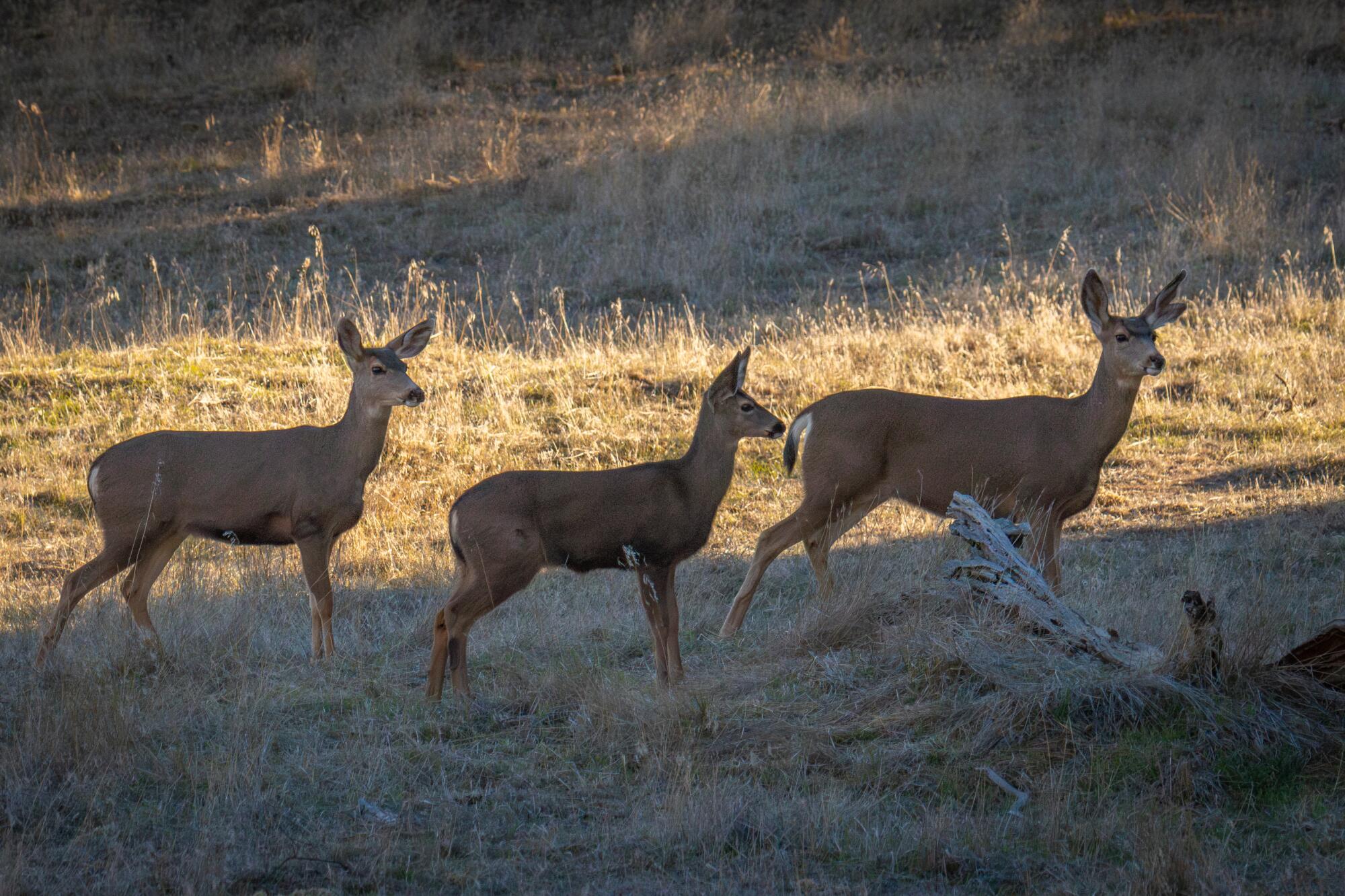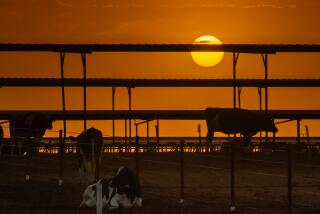
State officials reported the presence of deadly chronic wasting disease in two wild California deer earlier this week. This is the first time the disease, which has plagued other areas of the nation for years, has appeared in the state’s deer or elk population.
The positive samples came from a deer that died of unknown causes near Yosemite Lakes in Madera Counry, and another killed by a vehicle strike near Bishop in Inyo County.
“The disparate locations of these two detections indicate that CWD has probably been present in California for some time, since the incubation period can be months to years,” state wildlife officials said in an announcement Tuesday.
What are those blue things washing up on Southern California beaches? Velella velella, of course. Also known as by-the-wind sailors. They’re kind of like jellyfish.
According to experts, the disease can take a year or more to develop in an animal once it is exposed. The disease is fatal and there are no known treatments or vaccines.
Also known as “zombie deer disease,” chronic wasting disease is a contagious infection similar to mad cow disease, or bovine spongiform encephalopathy.
The disease has been detected in animals in North America — including Canada and 34 states in the U.S. — as well as Norway and South Korea.
The disease attacks the brain and nervous system, and targets members of the cervid family, such as deer, elk, reindeer and moose. According to the U.S. Centers for Disease Control and Prevention, symptoms of infected animals include include drastic weight loss (wasting), stumbling, listlessness and other neurologic symptoms.
T. rex intelligence was likely much closer to that of modern-day crocodiles than primates — a perfectly respectable amount of smarts for a therapod.
There is no indication that it affects humans. However, health officials said it is critical to keep the disease out of the food supply.
The state’s department of fish and wildlife has been monitoring California elk and deer populations for zombie deer disease since 2000. Officials have been working to increase surveillance efforts, and ask hunters to have their quarry tested at one of several sampling stations.
“The public can help limit the spread of CWD by reporting any signs of illness in deer and elk populations, and hunters should strongly consider testing their harvested deer or elk.,” said Brandon Munk, the state’s wildlife veterinarian who oversees chronic wasting disease surveillance and response efforts, in a statement.









